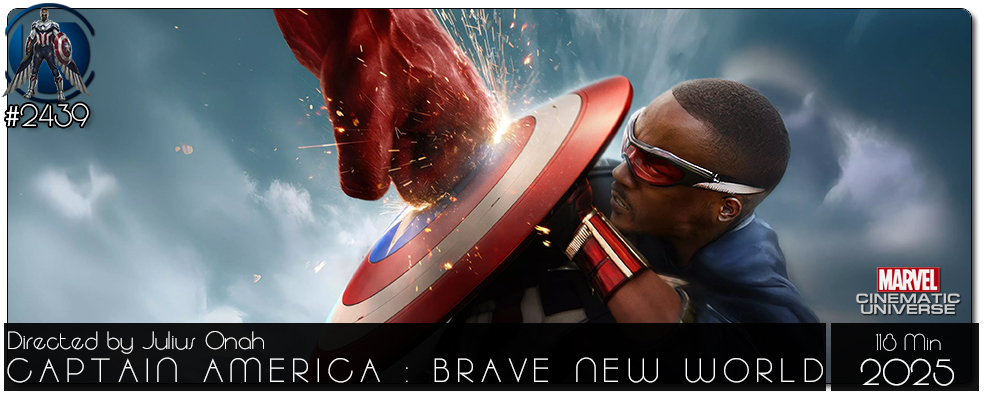Movie Review – Captain America: Brave New World
Principal Cast : Anthony Mackie, Danny Ramirez, Shira Haas, Carl Lumbly, Xosha Roquemore, Giancarlo Esposito, Liv Tyler, Tim Blake Nelson, Harrison Ford, Johannes Haukur Johannesson, William Mark McCullough, Takehiro Hira.
Synopsis: Sam Wilson, the new Captain America, finds himself in the middle of an international incident and must discover the motive behind a nefarious global plan.
********
At this stage of the Marvel Cinematic Universe—now approaching two decades of continuous storytelling across film, television, and streaming—wandering into the fourth stand-alone Captain America film feels very different from the Chris Evans-led instalments. Brave New World presents the franchise’s newest Cap: Sam Wilson, formerly the Falcon, who inherited the shield at the end of Avengers: Endgame. Longtime MCU fans will be familiar with the fallout of that transition, explored in the Disney+ series The Falcon & The Winter Soldier, which co-starred Sebastian Stan’s reformed villain Bucky Barnes and wrestled meaningfully with what it meant for a Black man to carry the stars-and-stripes shield in a modern America. That series, in many ways, sets the thematic backdrop for Brave New World—a film that feels like it wants to say something but ends up circling the runway without ever quite landing.
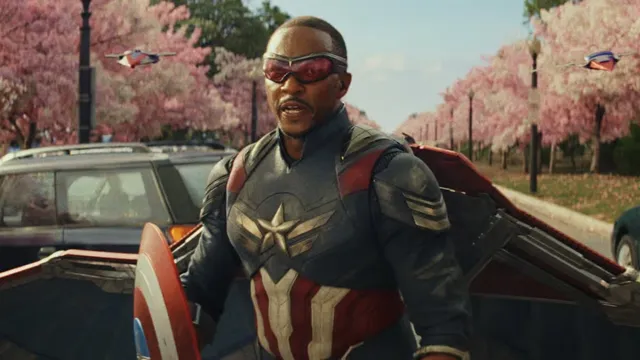
I use the term “placeholder” deliberately, because Brave New World plays like it’s treading water. It’s hesitant to break from the broader Phase narrative, instead rehashing subtext from TF&TWS to diminishing effect. Too often, Sam Wilson feels like a passenger in his own story, as the film contorts itself to introduce a raft of new characters—no doubt future building blocks for the Captain America brand—and repositions narrative chess pieces in preparation for the impending Avengers: Doomsday. There’s a distinct effort to recapture the early MCU-era freshness while clinging to the now well-worn formula of surprise cameos (a few of which here land with a thud), structurally familiar pacing, and obligatory world-building. The end result is a middling, emotionally indifferent adventure for a character who deserves better.
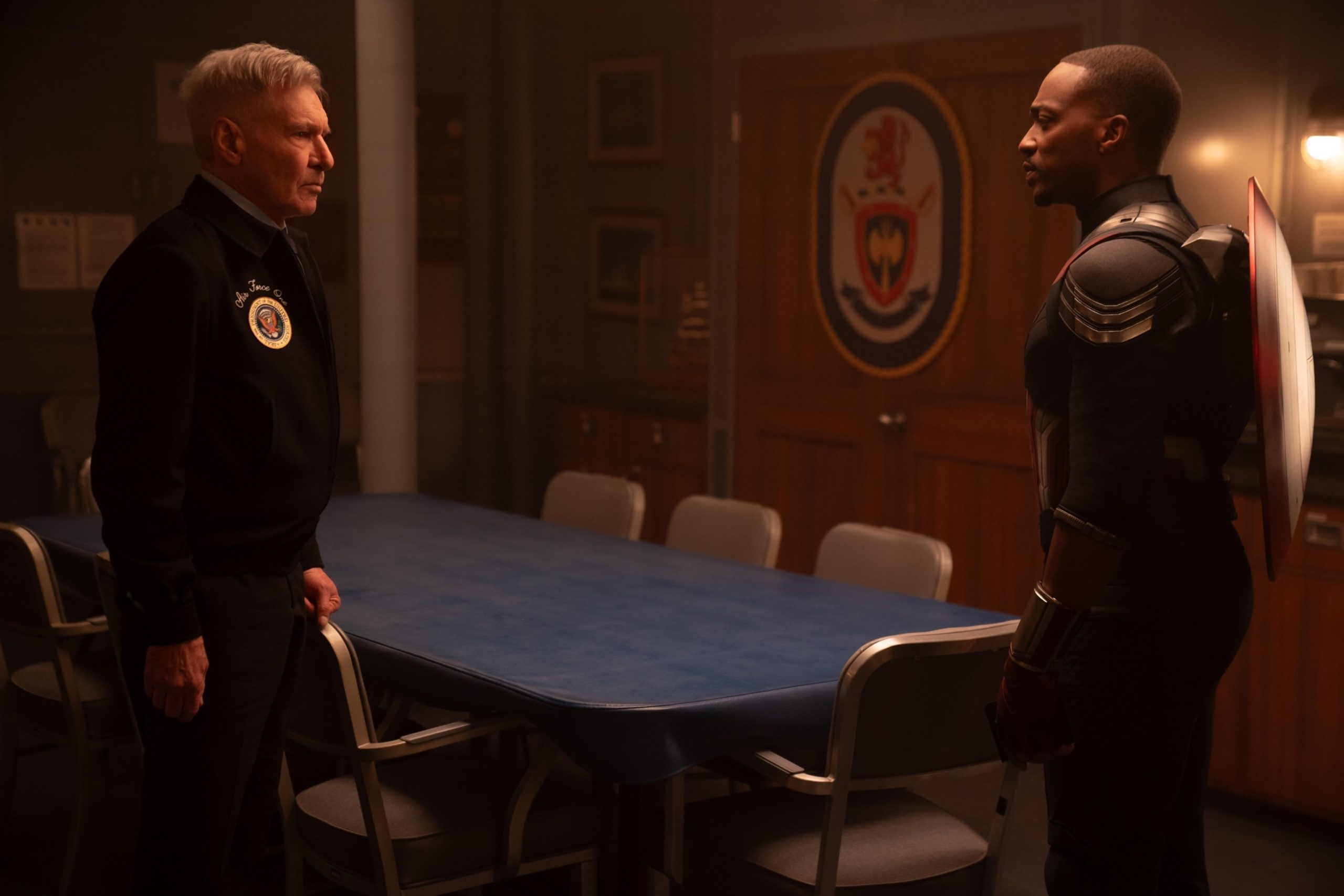
Plot synopsis courtesy Wikipedia: New Captain America Sam Wilson (Anthony Mackie) and Joaquin Torres (Danny Ramirez), now the new Falcon, are deployed to Oaxaca, Mexico, to intercept an illegal sale of adamantium, a newly discovered metal located on Celestial Island—the remnants of the frozen cosmic being seen in Eternals. The mission, ordered by newly elected U.S. President Thaddeus Ross (Harrison Ford), sets off a chain of events that pulls Wilson into a volatile geopolitical crisis. Ross invites Wilson, Torres, and Isaiah Bradley (Carl Lumbly) to a global summit at the White House to discuss the regulation of adamantium mining. Things go haywire when attendees, including Bradley, are manipulated into attacking Ross—revealing a mind-control conspiracy orchestrated by Dr Samuel Sterns (Tim Blake Nelson), who uses a specific song to trigger his influence. As Wilson digs deeper, he uncovers more sinister secrets involving Ross and a looming international threat that could tip the world into chaos.
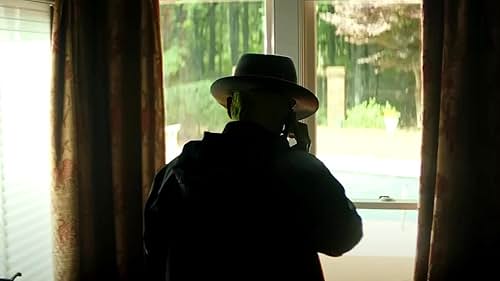
The problem is, Brave New World tries to juggle too many narrative elements and collapses under the weight of its own ambition. Not only does it attempt to resolve threads left dangling from TF&TWS, but it also introduces a host of new faces: Ruth Bat-Seraph (played by Israeli actress Shira Haas), a former Black Widow turned presidential security advisor; Giancarlo Esposito’s imposing mercenary Sidewinder; and Xosha Roquemore’s Secret Service agent Leila Taylor. Then there’s the return of Tim Blake Nelson’s Dr Sterns from the now-retrofitted The Incredible Hulk, with additional world-building that edges us closer to the full in-universe arrival of the X-Men. The central MacGuffin—adamantium, a metal supposedly stronger than vibranium (used to forge Cap’s shield) and enhance yet-to-be-reintroduced characters like Wolverine—feels more like a narrative prop than a game-changing revelation. There are echoes of The Winter Soldier’s political undercurrents here, but they’re undercooked and feel more like a Kevin Feige directive than an organic outgrowth of character or theme.
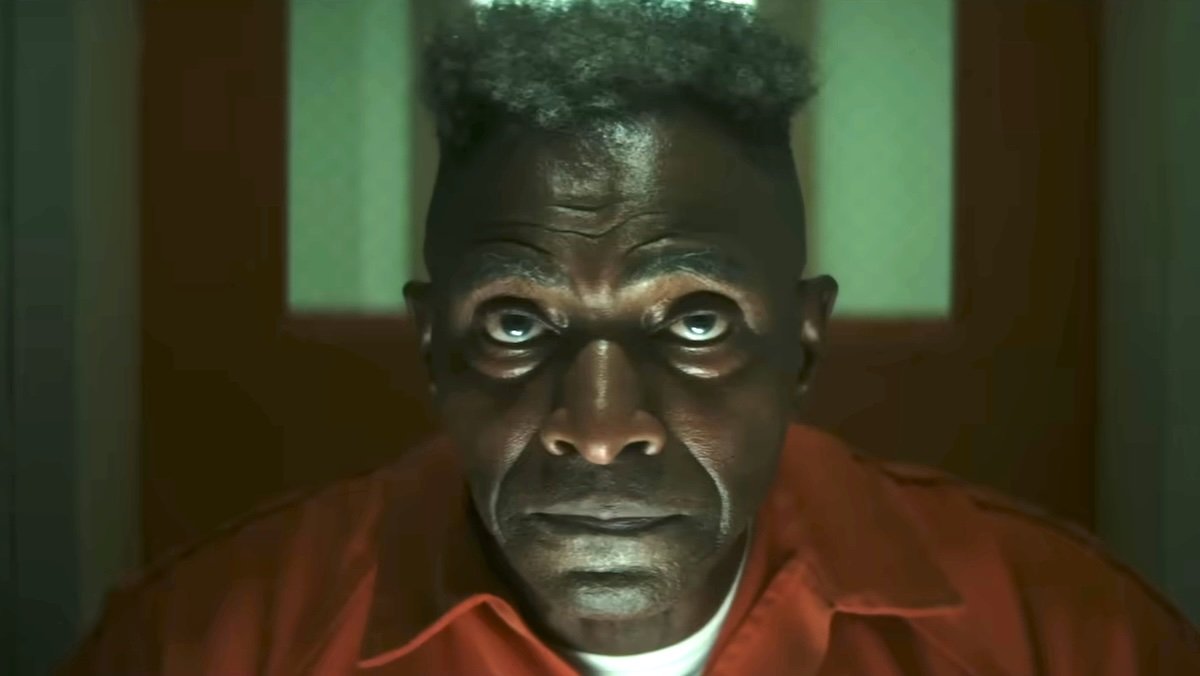
Frustratingly, Brave New World seems more interested in setting the stage for what’s next rather than standing on its own. That’s disappointing, particularly as this marks Anthony Mackie’s first solo outing as the titular star. The holdovers from past projects—many of which casual audiences might not fully recall—turn the experience into a disjointed slog. With around five credited writers, it’s little wonder the film feels piecemeal and episodic, its narrative structure fractured and its tone inconsistent. Carl Lumbly’s Isaiah Bradley, one of the most compelling characters from TF&TWS, is reduced to a narrative pawn here—his poignant connection to America’s fraught racial history overshadowed by action scenes and underdeveloped conspiracies.
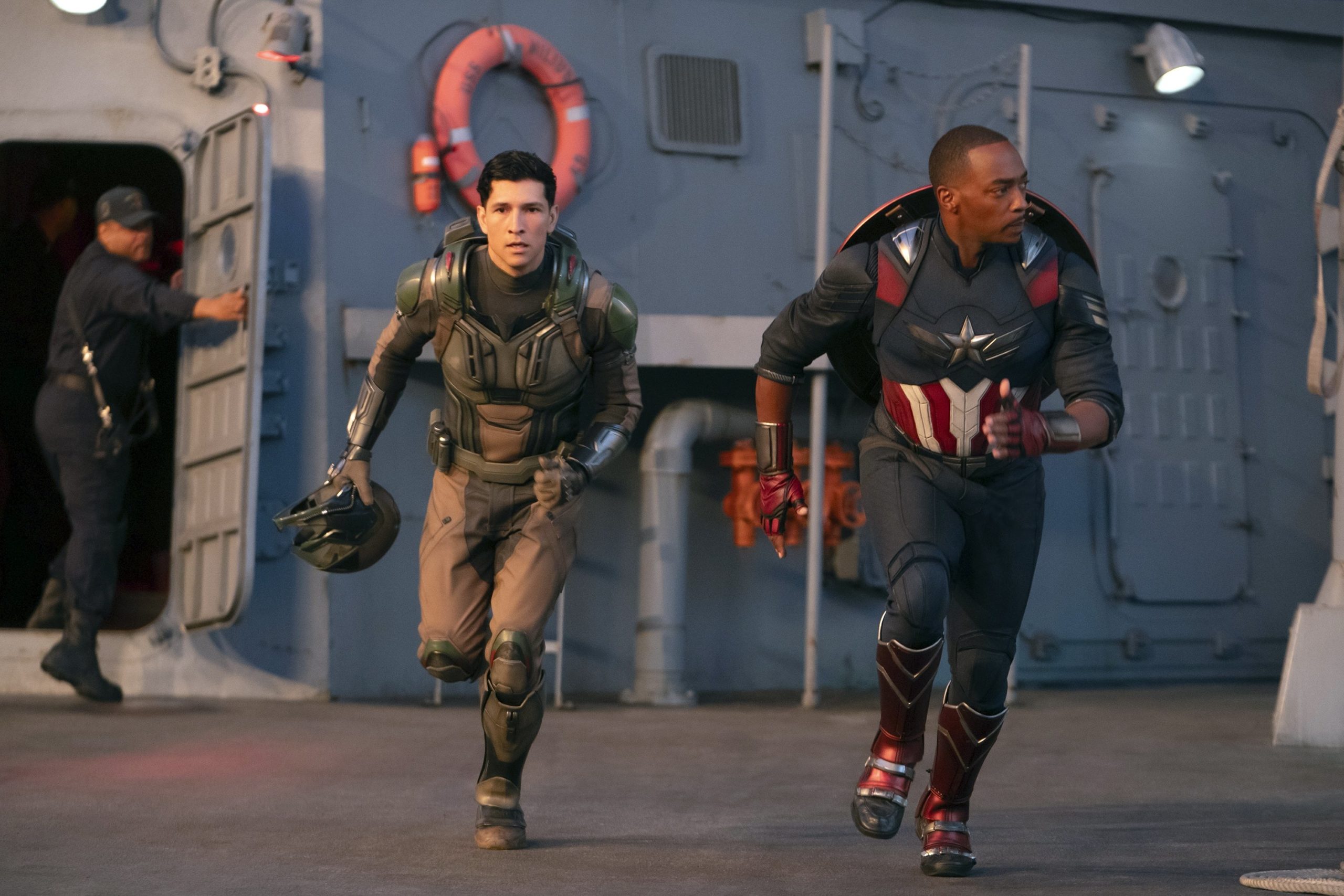
That intersection of Black identity, American symbolism, and personal trauma should have been the film’s emotional cornerstone. But director Julius Onah (The Cloverfield Paradox) seems overwhelmed by the clutter. Almost everything of potential thematic substance is buried beneath explosions, third-act reveals, and Harrison Ford’s curiously phoned-in performance as President Ross. Taking over from the late William Hurt, Ford’s version of Ross is underwritten and bizarrely out of his depth. This is the same character who once masterminded the Sokovia Accords and strong-armed the Avengers into compliance—and yet here, he feels like a man perpetually baffled by his own authority. Ford’s turn lacks the icy assurance Hurt brought to the role, and his transformation into the Red Hulk—something spoiled in the film’s marketing—feels unearned, arriving with a shrug rather than a gasp.

The long-running antagonism between Wilson and Ross, which dates back to Civil War, is touched upon but not given nearly enough weight. Their supposed reconciliation lacks emotional payoff, and Ross’ heel-turn feels like a ticked box rather than a character moment. The story’s climax, involving geopolitical brinkmanship between the United States and Japan over the emergence of adamantium and the giant frozen Celestial, never feels grounded or urgent. And Sterns’ ultimate plan—a mind control scheme facilitated through music—borrows heavily from Civil War’s Baron Zemo arc without offering anything fresh. The stakes feel perfunctory, the villain motivations recycled.
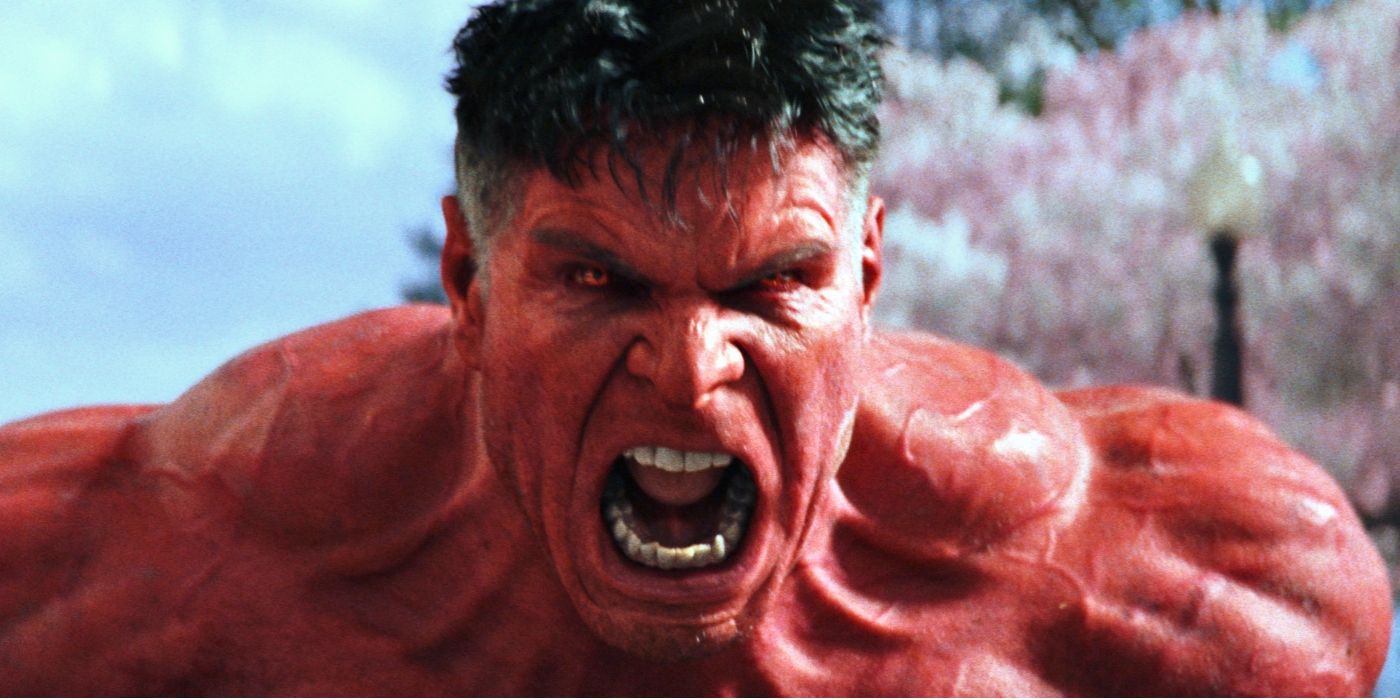
Even the film’s supposed surprises fail to ignite. Sebastian Stan’s cameo as Bucky is reduced to a soggy patriotic pep talk, devoid of tension or insight. Liv Tyler’s return as Betty Ross, positioned as an emotional anchor for her now-incarcerated father, feels out of place—more suited to a post-credits sting than part of the core plot. Giancarlo Esposito’s Sidewinder, meanwhile, is entirely wasted: a throwaway character signposting threats yet to come rather than presenting any present danger. The film spends so much time spinning its wheels, laying track for future crossovers, that it forgets to focus on the story it’s meant to tell.

That sense of narrative drift has become a recurring issue for Marvel of late. Brave New World is symptomatic of a studio afraid to take risks, choosing instead to funnel all creativity into scaffolding for Phase whatever-we’re-up-to. Gone is the character-driven storytelling of Iron Man or the political nuance of The Winter Soldier. In its place, we get another villain-of-the-week yarn dressed up in franchise continuity and hamstrung by studio mandates. None of it feels urgent, and none of it feels like it demanded a feature film to be told.
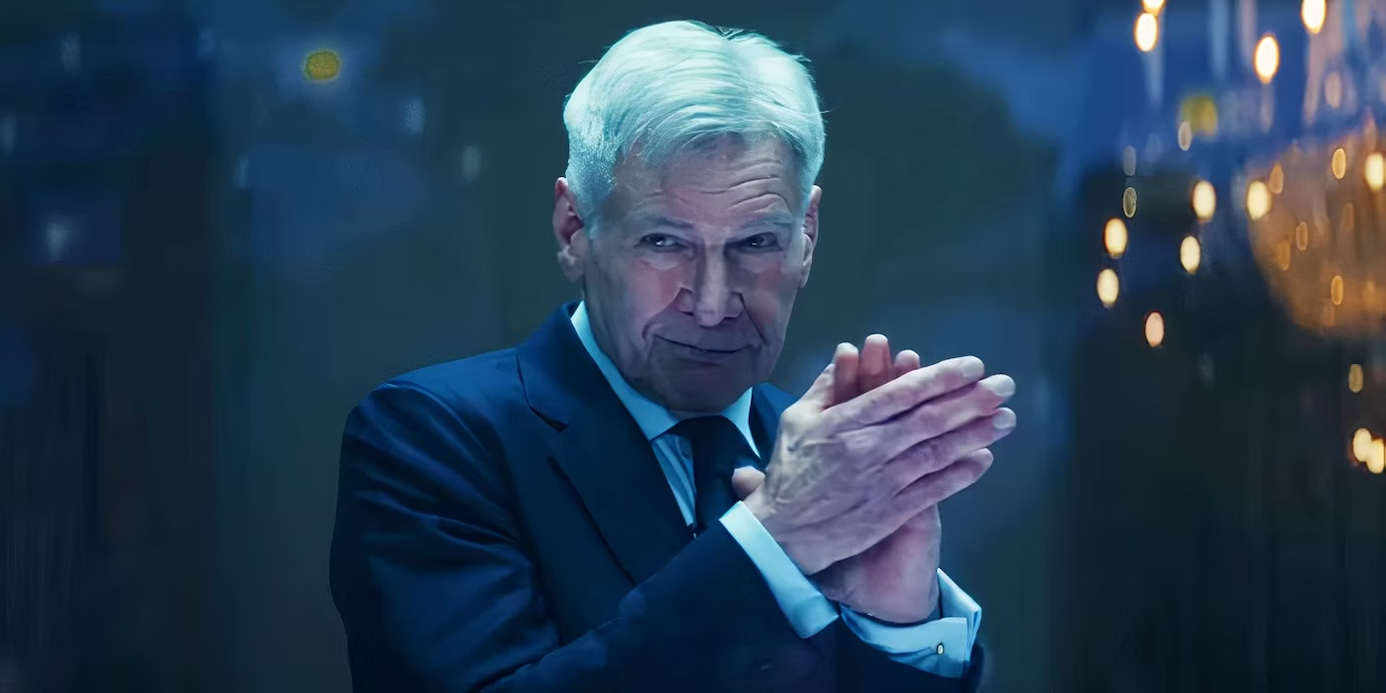
That’s not the fault of Anthony Mackie. He’s long been one of the MCU’s most grounded and watchable performers. But he’s given little space to evolve here. Sam Wilson, despite now holding the shield, is overshadowed by world-building, legacy characters, and setup for films yet to come. It’s a waste of potential, both for the character and for Mackie himself. Brave New World is rushed, uneven, and tonally dissonant from what came before. It lacks the thematic heft, narrative clarity, and character focus needed to elevate it alongside the best of the franchise. I’d put it on par with Iron Man 3—a valiant effort, but not one I’ll be in a hurry to revisit.

